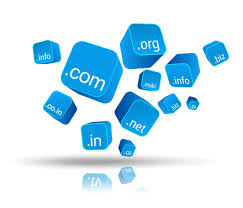
The Ultimate Guide to Domain Name Registration
In today’s digital landscape, a strong online presence is essential for businesses, entrepreneurs, and even personal projects. A critical element of this presence is a domain name that is both memorable and relevant to your brand. However, buying a domain can be a complex process with several potential pitfalls. Here are some tips to guide you through purchasing a domain name that meets your needs and supports your online success.
1. Start with a Clear Purpose
Before you begin searching for a domain name, it’s essential to define the purpose of your website. Are you launching an e-commerce store, a blog, a portfolio, or a company website? Knowing your quickpickdomains.com purpose will help you choose a domain name that aligns with your goals and resonates with your target audience.
2. Brainstorm and Research
Generate a list of potential domain names. Aim for names that are short, memorable, and easy to spell. Avoid using numbers, hyphens, or uncommon words that could confuse your audience. Once you have a list, research each name to ensure it isn’t already in use or trademarked. Tools like Domainr and Namechk can help you quickly see the availability of your chosen names across various platforms.
3. Choose the Right Extension
While .com is the most popular and recognizable domain extension, there are many others to consider, such as .net, .org, .biz, and newer ones like .tech or .store. If the .com version of your desired name is taken, these alternatives might be worth considering. However, be aware that some extensions are more suitable for specific types of sites (e.g., .org for non-profits).
4. Check the Domain’s History
If you’re considering purchasing a previously owned domain, check its history to ensure it hasn’t been associated with any negative activities, like spamming or illegal content. Tools like the Wayback Machine and Whois Lookup can provide insights into a domain’s past, helping you avoid any potential reputational issues.
5. Think About Keywords
Including relevant keywords in your domain name can enhance your SEO efforts, making it easier for potential visitors to find your site through search engines. However, prioritize creating a natural and brandable name over cramming in keywords. A domain like “bestshoes.com” might rank well, but “Zappos.com” is a strong brand despite not having “shoes” in the name.
6. Act Fast
Good domain names get snapped up quickly. If you find an available domain that fits your criteria, don’t hesitate to purchase it. Domain registration is relatively inexpensive, and many registrars offer discounts for multi-year purchases or bundled services.
7. Use a Reliable Registrar
Choose a reputable domain registrar to ensure your purchase is secure. Companies like GoDaddy, Namecheap, and Google Domains offer competitive pricing and reliable customer service. Read reviews and compare features such as privacy protection, email forwarding, and customer support.
8. Protect Your Privacy
When you register a domain, your contact information becomes publicly accessible through the Whois database. To protect your privacy and reduce spam, opt for Whois privacy protection, which most registrars offer for a small fee.
9. Consider Future Growth
Think about how your domain name will fit your brand as it grows. Avoid overly specific names that might limit your business’s expansion into new areas. A flexible, broad domain name will allow you to pivot or diversify your offerings without requiring a new web address.
10. Negotiate Wisely
If your desired domain is already taken but you believe it’s perfect for your brand, consider reaching out to the current owner. Use a professional approach and be prepared to negotiate. Set a budget for what you’re willing to spend and don’t be afraid to walk away if the price exceeds your valuation.
By following these tips, you can navigate the domain buying process with confidence and secure a web address that supports your online presence now and in the future.

